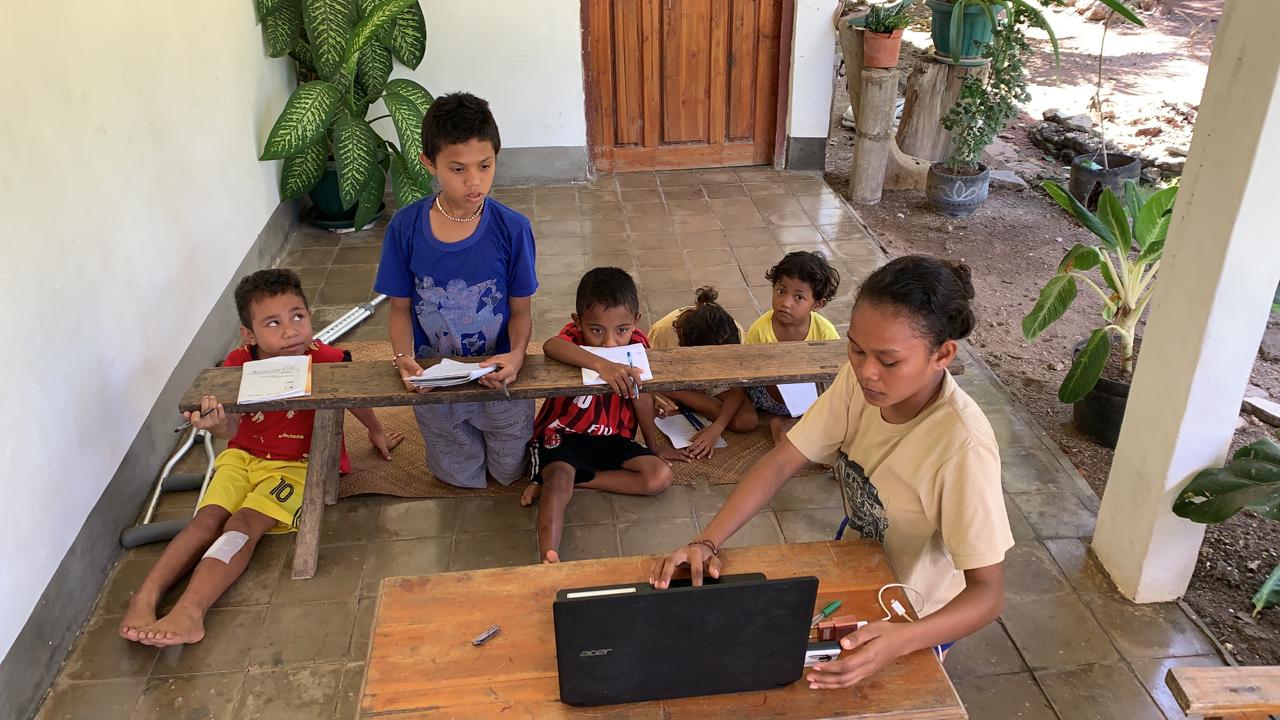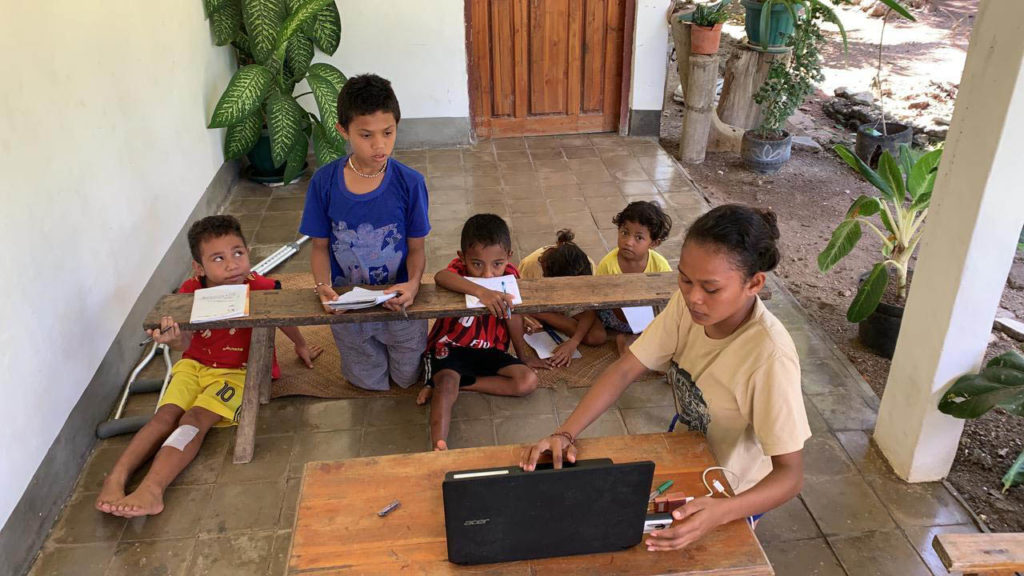Reflecting on COVID-19 in Indonesia
The following was sent by mission co-worker in Indonesia, Karen Campbell-Nelson, in response to an email sent to all mission co-workers from Global Ministries Co-Executives, Rev. Dr. Julia Brown Karimu and Rev. Dr. Karen Georgia Thompson.
…When medical and laboratory resources are so limited in Indonesia, the government is faced with making hard decisions about distribution priorities. As a result, some provinces are better equipped to respond than others. Our province, in a predominantly rural-based economy of eastern Indonesia, must compete with urban areas where cases can be clearly counted and the urgency is felt more immediately. As with other provinces in eastern Indonesia, we face grave shortages of masks, ventilators, isolation spaces, plus the challenge of getting valid samples to the very few labs in the country (hours away by plane in Jakarta) where they are held in an increasingly extended waiting line. The growing number of people who ARE being tracked here challenges the untenable notion held by too many people we know, namely that our province is virus-free. The number of OPD (people under observation) and PDP (patients under supervision) in our province continues to grow. These expert-sounding acronyms are, I think, being used in part to mask the reality of the province’s inability to conduct adequate and reliable testing. Although the problem of shortages is nothing compared to what is being faced in hot spots in the US, should serious virus-related illnesses and deaths begin to be felt here, the shortages will be no less debilitating for doctors and nurses who must treat the ill. It has been reported that a few Indonesian doctors serving patients in Java have already died.
 John and I remain healthy and seek to continue our ministry as best we can, working remotely from home as do our colleagues here. At the same time, we also have trouble knowing what is best to do sometimes. For example, we have opened our home to a few neighborhood children (grade school and jr. high levels) for a couple of small classes that includes 10-year-old Santi whose family lives with us. Crowding around a laptop screen for online lessons doesn’t support social distancing, but we do insist on frequent handwashing and use the opportunity to teach the children about viruses and how they spread.
John and I remain healthy and seek to continue our ministry as best we can, working remotely from home as do our colleagues here. At the same time, we also have trouble knowing what is best to do sometimes. For example, we have opened our home to a few neighborhood children (grade school and jr. high levels) for a couple of small classes that includes 10-year-old Santi whose family lives with us. Crowding around a laptop screen for online lessons doesn’t support social distancing, but we do insist on frequent handwashing and use the opportunity to teach the children about viruses and how they spread.
The GMIT Synod is struggling to respond effectively but also quickly. GMIT clergy, lay leaders, and youth seek to support congregations and presbyteries in responding not only to those who are ill with virus-like symptoms or most vulnerable to the virus but also to a very large group of individuals affected by the economic impact, particularly daily wage workers and farmers whose crops failed last season due to lack of rainfall. Social media offers a plethora of educational materials, many produced by the government and NGOs, while at the same time it broadcasts false news and hoaxes. There has been significant resistance by many church members regarding the Synod’s call to shift to house worship for several months. The message is made more difficult by the fact that this will affect the annual, and very popular, Easter parade organized by church youth as well as communion and Easter services. (I should note that similar challenges are faced by the huge Muslim community throughout Indonesia as worship in mosques is also temporarily suspended in the run-up to the fasting month of Ramadan.) We join our partners in the Synod seeking to respond wisely and in faith.
I am on the US Embassy email list and, in recent days, have received almost daily alerts with the same message: if US citizens choose NOT to leave Indonesia, they should be prepared to be here for a long time (of course no one knows for how long). The dominant message of these alerts is to highlight the dwindling number of commercial flights available from Indonesia that would reach the US. The Indonesia-US flight via Kuala Lumpur (Malaysia) is no longer available, and today’s alert explains that flights via Tokyo will no longer be available from 1-21 April. It seems clear the embassy’s concern is there may come a time when no flights to the US will be available.
The geographic gulfs that separate us may feel increasingly wide, yet the tie that binds our hearts to close remains strong through Christ. Thank you for your reminders of that.
Karen Campbell-Nelson serves with the Evangelical Christian Church of West Timor (GMIT) in Indonesia. Her appointment is made possible by gifts to Disciples Mission Fund, Our Church’s Wider Mission, OGHS and your special gifts.

